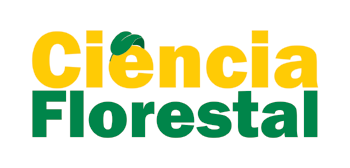ABSTRACT
The Brazilian rose wood is a native species from Brazil that has great potential for use in landscaping and reforestation, in addition to its use in luxury furniture. The objective of this work was to evaluate the effect of different substrates and concentrations of indole butyric acid (IBA) in the cutting of Brazilian resedá. The experiment had a randomized design in a 3x3 factorial arrangement with five replications, and each plot was composed by ten cuttings. The factors were types of substrates (washed mild sand; carbonized rice husk and vermiculite medium granules), and IBA (0 mg. L-1; 1,000 mg.L-1 and 2,000 mg.L-1). After 104 days, the following variables were evaluated: cutting survival; leaf retention; non-rooted cuttings with callus; rooted cuttings; root number per cutting; root length per cutting and dry root matter per cutting. There was no difference using IBA to improve the cuttings rooting, with average of 23.5% of rooting. Among the substrates, although the cuttings in sand and carbonized rice husk showed a better leaf retention, all substrates can be used.
Keywords:
Imbiriba; native forest species; post seminal development
